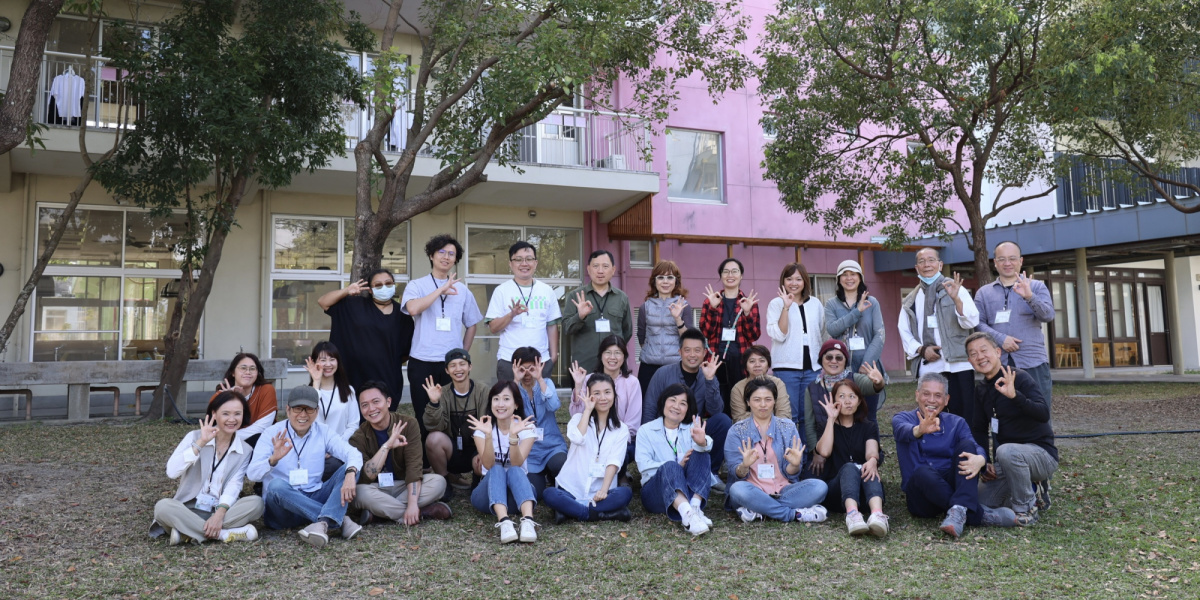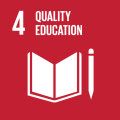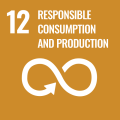Regional Revitalization Stories from Taitung – Remote but Rich in Culture and Passion
What would a place look like if it showcased the beauty of life and cultural charm that has been meticulously crafted on this land?
This February, over 20 local innovators from Hualien and Taitung gathered at Junyi School of Innovation, an internationalized school located in Taitung (referred to as Junyi School). The workshop, initiated by Chair Stanley Yen of The Alliance Cultural Foundation (ACF) and Junyi School, along with Chair Mei-Ling Chen of the Taiwan Regional Revitalization Foundation (TWRR), focused on regional collaboration and site revitalization. In this workshop, participants, divided into groups, took turns presenting their creative ideas. Among them were young people returning to their hometowns, food experts, hotel managers, entrepreneurial women committed to innovative food education, and teams applying design thinking to address social issues. Some had returned to their hometowns for three years, while others had been deeply rooted in their communities for 30 years. Despite their diverse industries, they shared a common dedication to a refined experience economy, not only pursuing commercial success but also striving for a harmonious coexistence with the land of Taitung.
“To solve rural challenges, we must simultaneously consider elderly care, children’s education, and youth employment,” emphasized Chair Yen. His concept of a “Total Solution” for rural development, combined with the TWRR’s platform spirit of “co-learning, co-creation, sharing, and collective benefit,” connected everyone present.
Mei-Ling Chen, the Mother of Taiwan’s Regional Revitalization
Since the Executive Yuan declared 2019 as the year of regional revitalization, the term “regional revitalization” has, in just five years, evolved from a distant policy term to a familiar career option. However, it is not simply a new occupation but a “life creation” movement led by the nation to address issues related to urban-rural functionality and population distribution. This wave has gradually illuminated the land, adding warmth to each town and village.
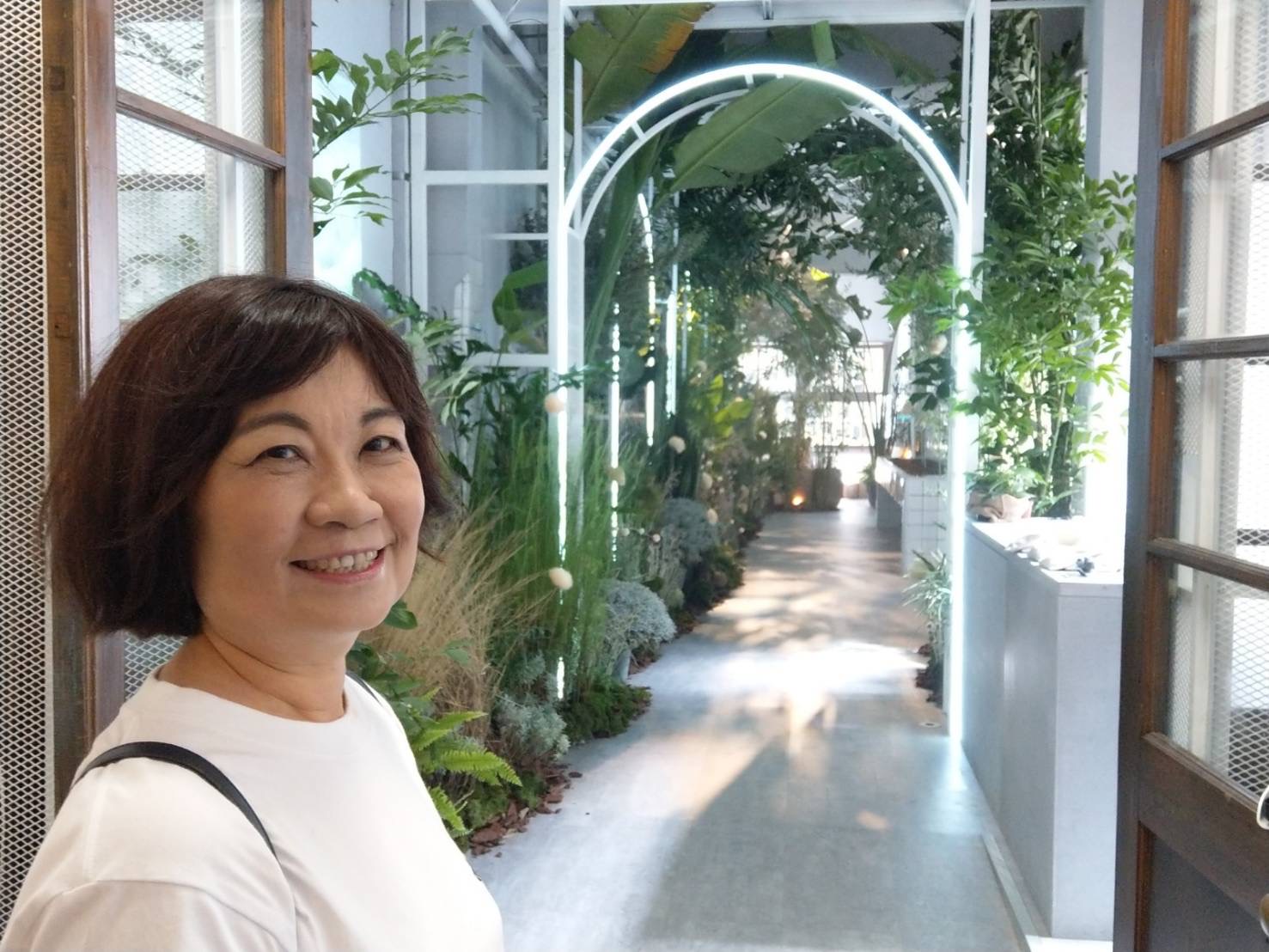
After nearly 40 years of public service, former Minister of the National Development Council (NDC), Chen, retired and accepted an invitation from Chou Chun-Chi, the founder of Sinyi Realty, who had long been involved in community rebuilding efforts. She became the Chair of TWRR. Over the past three years, she has continued to work on the frontlines, listening to the voices of local teams, connecting resources, and offering solutions. This hands-on approach earned her the affectionate nickname “Sister Mei-Ling” among the participants. By 2023, more than 300 regional revitalization teams had joined TWRR. In her book, translated into English as “The Happiness of Local Living: Chen’s Stories of Taiwan Regional Revitalization Part II (original title: 在地的幸福生活:美伶姐的台灣地方創生故事PART II), she wrote, “I have found, and am now climbing, my third mountain!” (The first mountain was her education, and the second was her career.)
Regional Revitalization in Taitung
Chen has had a long-standing connection with the Hualien and Taitung areas. Not only is she a Hualien native, but in 2012, the Executive Yuan established the Hualien and Taitung Area Sustainable Development Fund, during which time she recognized that the development of Hualien and Taitung must differ from that of western Taiwan. As NDC Minister, she witnessed the creation of this fund during the debate over whether or not to construct the Suhua Highway, and she believed that the real strength of the Hualien and Taitung areas lay not in large-scale development.
After dedicating herself to the mission of regional revitalization and frequently visiting Taitung, Chen observed the uniqueness of the region, “The vision of the eastern teams often starts from Day 1 with their hearts set on their hometowns. Whether it’s opening a shop or starting a business, from the very beginning they have a holistic view of their region, thinking, ‘Even though I am in a remote area, I am full of confidence.’” She deeply felt the passion people have for their hometowns. For instance, Usan. Karo, founder of Dagedan House B&B in South-Link Line, immediately saw the potential of Jinlun; Hsieh, Jung-jia of Ni Camak's Kitchen in Dawu had a clear vision for her town, and Tzu-Chen Chou of Hiyu Coffee in Taimali planned her operations with the entire Huayuan Village in mind from the very start.
Women Returning Home with Dreams
In 2023, Tzu-Chen Chou transitioned from working in arts administration to opening Hiyu Coffee in Taimali. At the age of 30, she took advantage of a break caused by the pandemic to return to her hometown from Taipei. Leveraging her familiar perspective of romantic storytelling, she began producing knowledge and stories about the village, focusing on cultural content and assuming a role in integrating community affairs through technology applications and guided tours. Reflecting on her journey from a literary enthusiast to a community secretary, she joked, “The leap in my career feels quite big, but since I wanted to return home, I just did it. After coming back, I started finding things I could do that moved me. Without even thinking about whether it would be difficult, I just began, and that’s how the story started.”
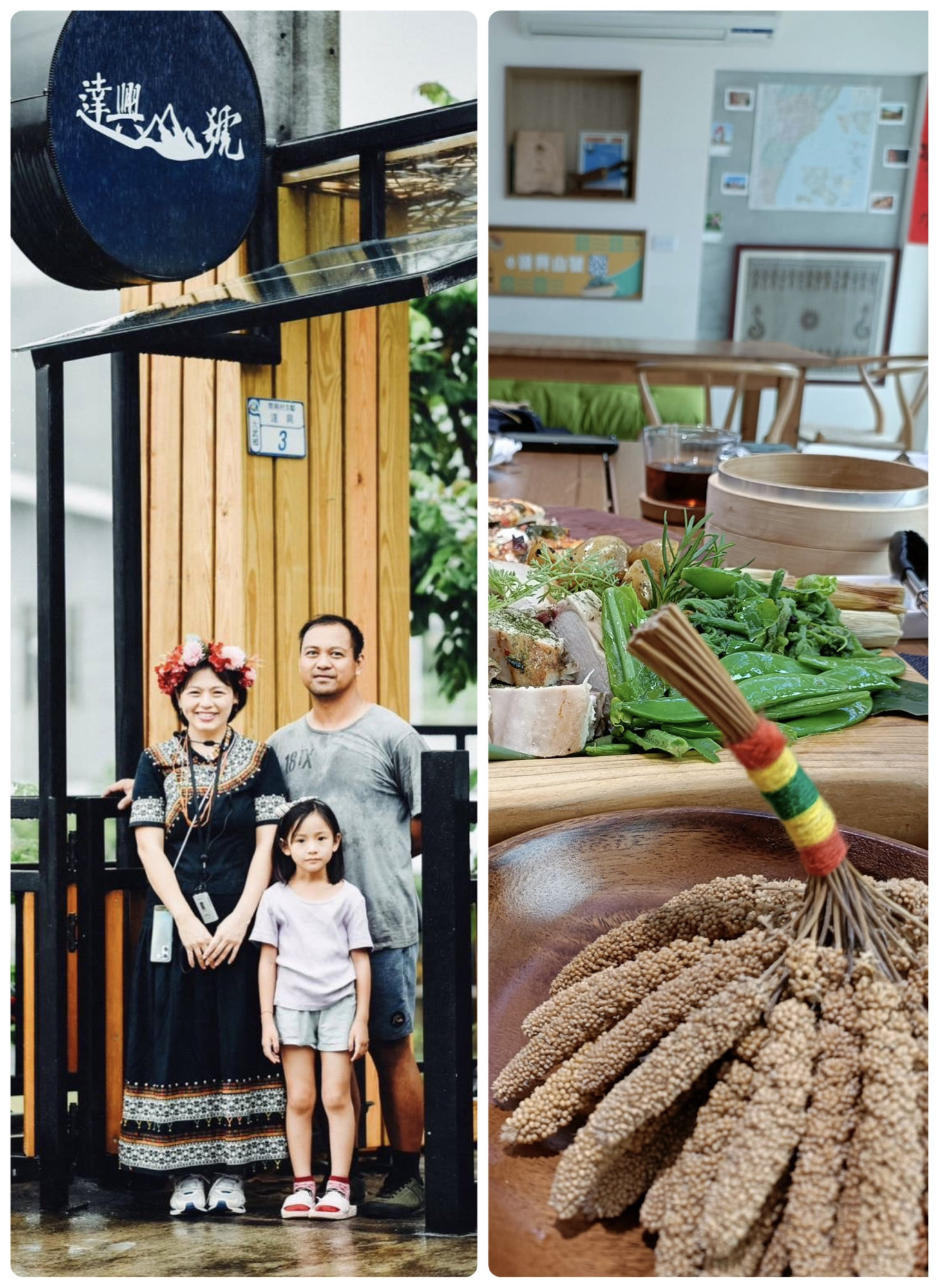
From Family Restaurant to Rural Education: The Story of Ni Camak's Kitchen
The story of rural education and family-run restaurants would not be complete without mentioning Hsieh (Jia-jia), the force behind the omakase restaurant, Ni Camak's Kitchen. As a tourism student, Jia-jia worked at a guesthouse in Taitung, and after graduating, she travelled widely as a tour guide. Ultimately, love brought her back. At the end of 2020, Jia-jia and her husband, Teng-Tai Hsu (A-Tai), decided to move to his hometown of Dawu with their two children. Soon after, she faced the challenges of providing her children with an education and securing an income. Despite numerous obstacles, this tribal daughter-in-law pioneered a model for expanding educational resources for her children by establishing Baby Boss at the foot of Dawu Mountain. As a result, Ni Camak's Kitchen is not only a refined Paiwan restaurant but also the starting point for tribal tourism and a new highlight in the development of rural education.
In addition to Jia-jia and Tzu-Chen Chou, other imaginative and proactive women have emerged as key growth drivers in their communities. Fiona Wu of Obsessed with Aiyu in Guanshan, Ting-Yu Lin of Nu'er Bu Dong Tea in Luye, and Yi-Hsian Fan, who founded Origin in Chishang to promote quality rice internationally, are all examples of such trailblazers. These women, full of creativity and action, are important forces in creating a new way of life in their local areas. Chair Yen remarked, “With just one call from Chen, local teams emerge. It’s exciting to see the collaborative energy in Taitung!”
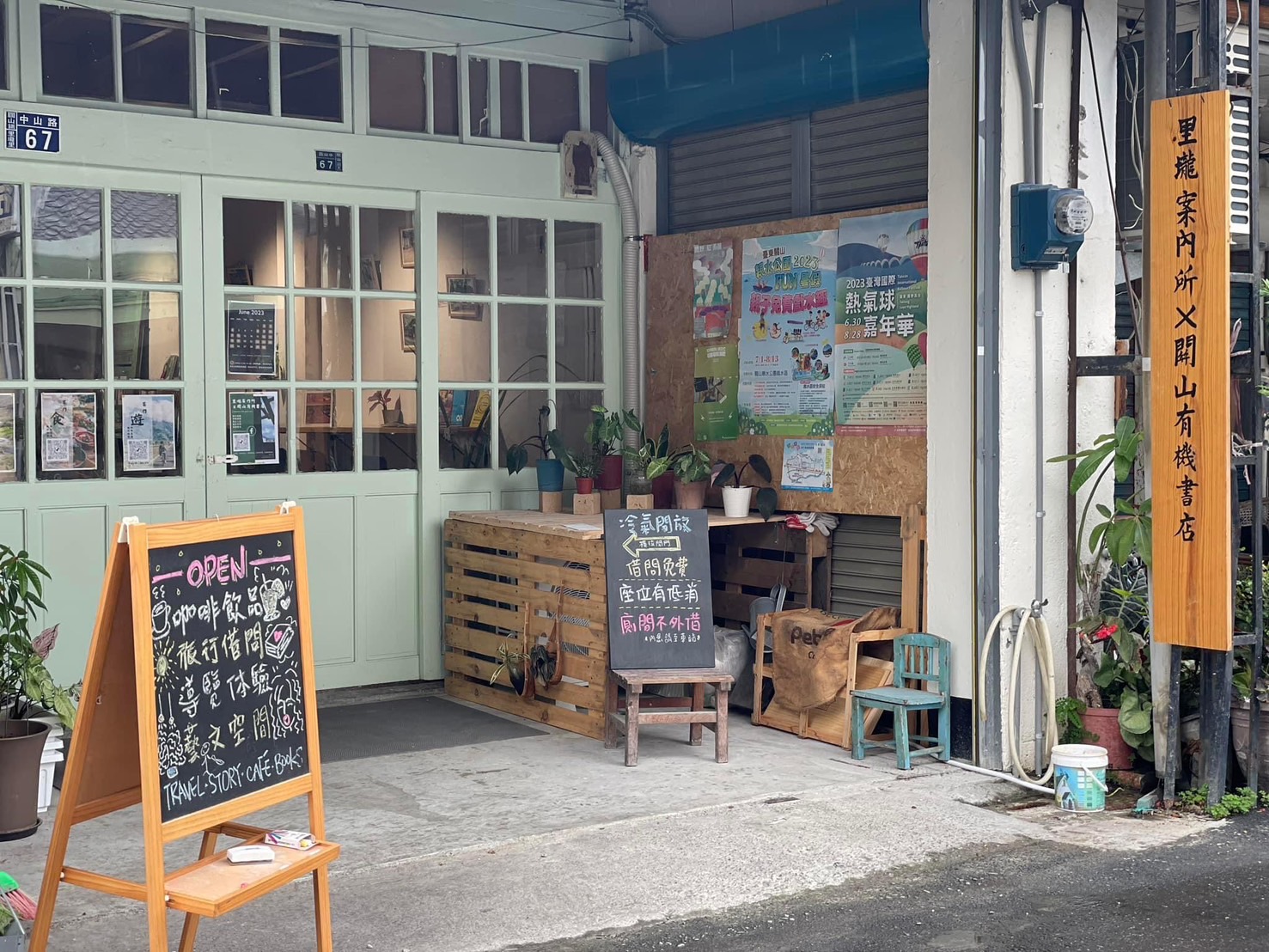
Beyond Entrepreneurship: Sustainable Values and Local Connections
Originating from the Japanese concept of “regional revitalization,” regional revitalization in Taiwan has developed its own unique substance and approach. Taiwan’s regional revitalization is being carried out through the model of an “experience economy.” Unlike traditional product and service offerings, the experience economy emphasizes value transmission and experience creation, where consumption is no longer merely the exchange of goods and services but involves the consumption of values and the construction of “beautiful experiences.”
“Cultural content is the soul. The TWRR continues to work on creating platforms, but the discovery and production of culture rely on people living locally,” said Chen. She emphasized the importance of “intergenerational collaboration” in regional revitalization. The historical memories and experiences of the older generation are invaluable assets, while many implementations require innovation. Blending culture into a vibrant way of life is where the strengths of the younger generation lie.
Fiona Wu of Obsessed with Aiyu
Fiona Wu’s father, known locally in Guanshan as “Aiyu Uncle,” is in his eighties and still climbs the mountains to cultivate and care for aiyu jelly figs. Over the past 30 years, he has poured his heart into growing 3,000 trees of Guanshan’s unique aiyu species. Their shared goal has always been simple: to grow the best aiyu and help everyone fall in love with this native Taiwanese plant. From creatively crafting aiyu-based dishes to incorporating food and agriculture education, Wu returned home at 50, leaving her hotel job behind, and humorously referred to herself as a “50-year-old returning youth.” She courageously defied the scepticism of others by opening an aiyu-themed shop, a concept many doubted. She confronted the challenge of traditional aiyu dishes being priced as low as a few NT dollars, typically sold with just lemon and sugar syrup.
After opening her store, she began taking classes to enhance her agricultural knowledge and ventured into schools to develop an aiyu-centered educational system. The father-daughter team exemplifies the perfect collaboration between generations, nurturing and passing down traditional skills while embracing innovation.
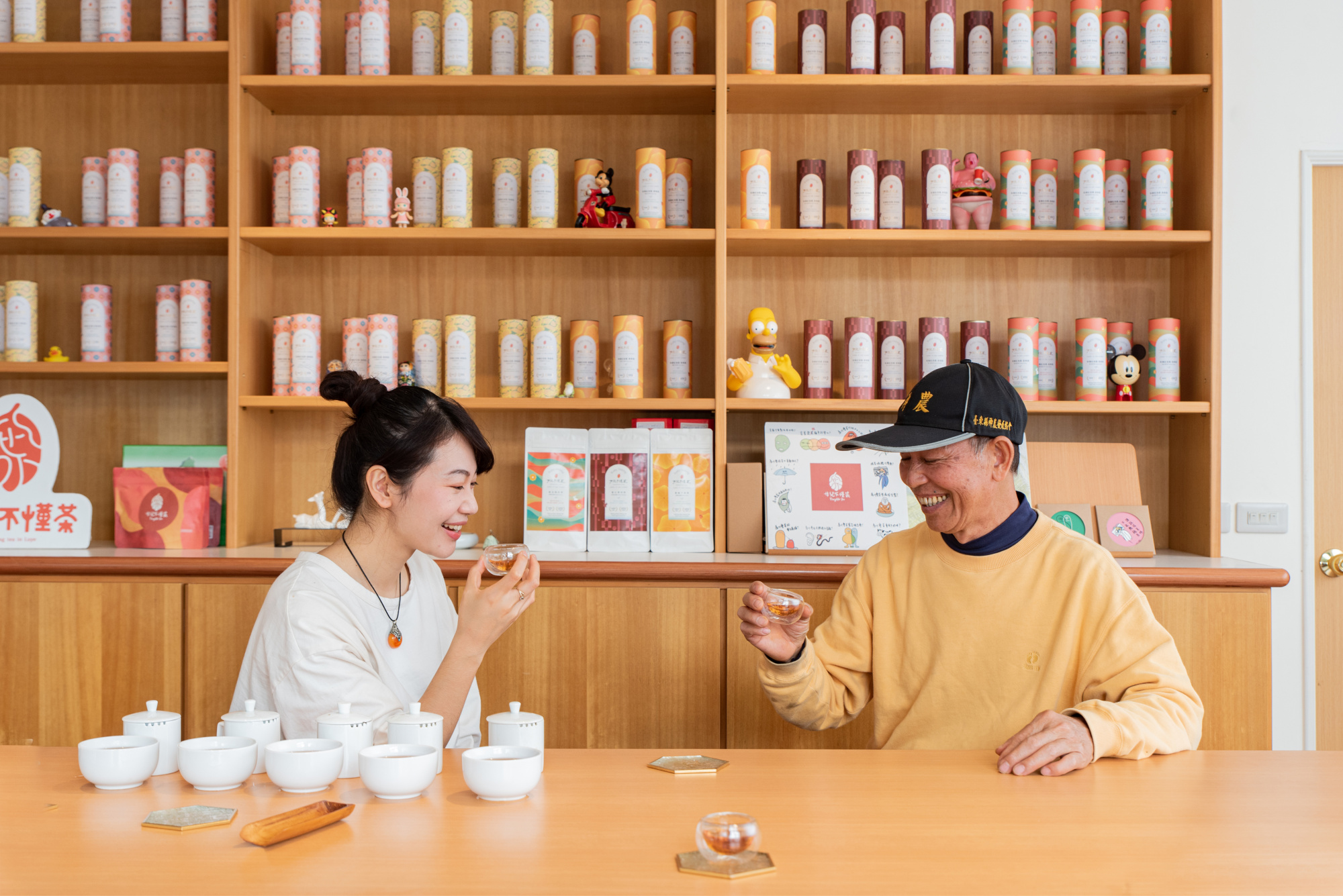
Ting-Yu Lin and Daughter's Tea
In 2019, Ting-Yu Lin founded Daughter's Tea. As the daughter of tea farmers, Lin had studied art and design, and, as the name suggests, she did not initially “understand tea.” However, she collaborated with the older generation, who were passionate about and knowledgeable in tea, to transform red oolong into a lifestyle brand embraced by a new generation. This fusion of tradition and modernity has gained widespread popularity.
Meanwhile, in Guanshan, Hao-Yu Chen (Ellen) opened Li Long Information Center x Guanshan Organic Bookstore, a bookstore with a café that not only offers local tourism services but also goes beyond by independently hiring a film director to produce a documentary about the memories of the Guanshan Zhonghua Theater. This project used the perspectives of the younger generation to reinterpret the older generation’s treasured memories of the old theater. The film was created through intergenerational collaboration, with young filmmakers and local participants working together to breathe new life into the story of Guanshan Zhonghua Theater, bringing its timeless charm back to the community.

Total Solution and the Application of Regional Revitalization
“People-centered” is the core value of regional revitalization, making “population” a crucial topic that cannot be overlooked. How can we achieve the goal of reversing the population outflow and encouraging people to return to their hometowns?
In his article, translated to English as “Total Solution: Blueprint for the Future of Tribal Life” (original title: Total Solution ─ 部落未來生活藍圖), Chair Yen emphasized that young people want to return to their hometowns but face difficult choices. Local job opportunities, children’s education, and elderly care in tribal areas are issues that must be addressed. As a result, the path back home becomes more distant. Chair Yen suggested that the government can respect the diversity of rural education by promoting experimental education, constructing well-planned centralized community elderly care services, and fostering shared living relationships. Additionally, by creating cultural districts focused on cultural and nature-based experiences, a complete solution can be achieved, simultaneously addressing education, employment, and care.
Responding to the vision of Total Solution, Chen sees the indispensable role of smart technology in long-term care and education. She believes that the emphasis on cultural experiences and content is closely aligned with the spirit of regional revitalization. “I believe that today’s technology could become tomorrow’s norm. For example, the issue of transparent trust can be solved through blockchain. Speaking of healthcare and long-term care, when Queen Elizabeth II passed away, I envied the peaceful ‘aging healthily at home’ process she had, with everything well-prepared for the end of life. With monitoring medical devices and transparent, comprehensive knowledge and information on how to deal with it, I believe this is something future technology can achieve,” Chen said.
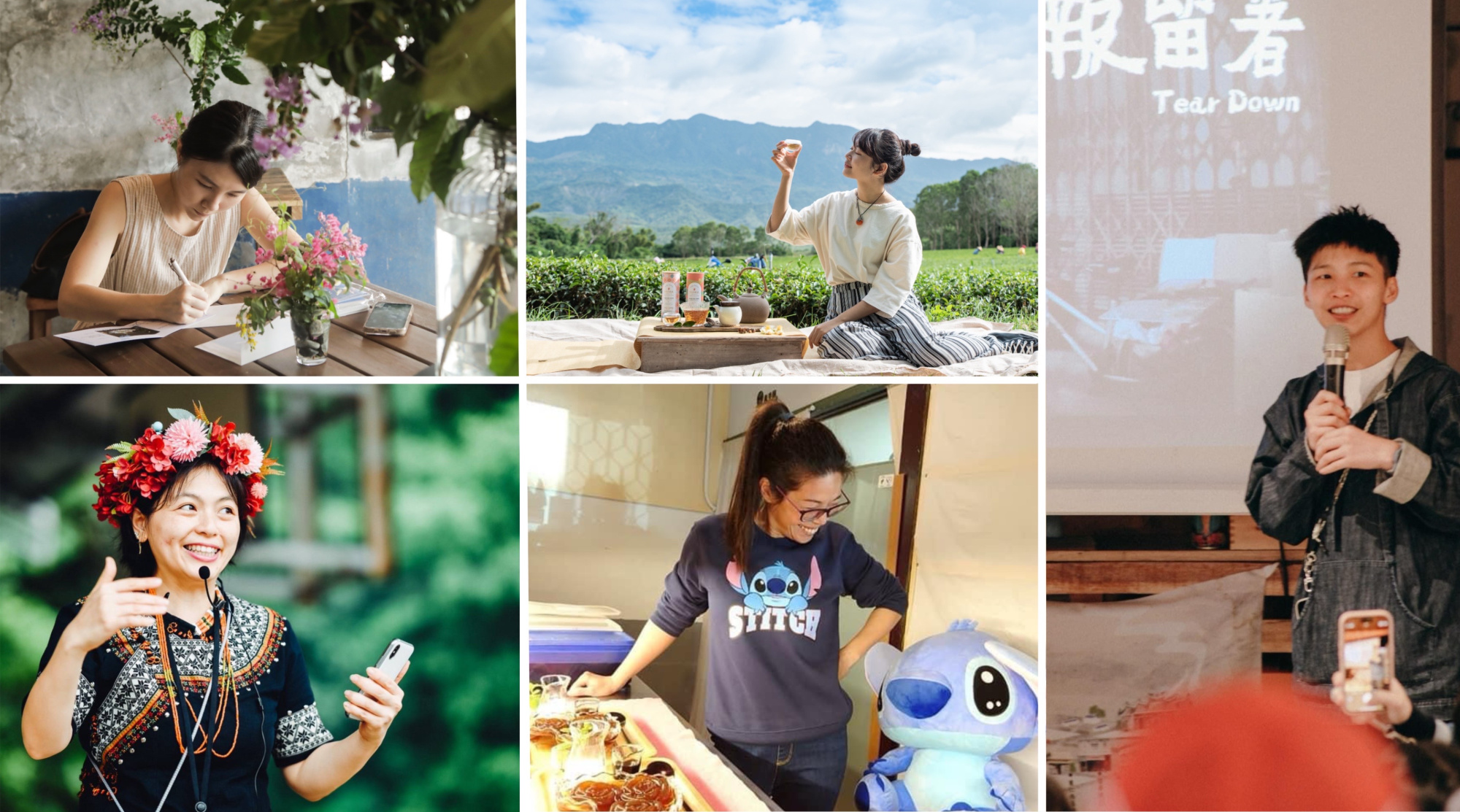
The Key Lies in the Heart, in Intergenerational Collaboration, and in the Spirit of Holistic Revitalization
“What is regional revitalization? How do we know if what we’re doing counts as regional revitalization?”
“Regional revitalization often involves serving the community and has a strong public nature. But to survive, what if I turn to commercial profit-making and drift further away from the original goals I set for myself? Is there such a risk?”
Chen responds, “Sustainable values and a model of local engagement are what we seek.” She explains that there are many forms of revitalization, and there is no standard operating procedure. However, as long as we remain closely tied to people, culture, land, industry, and scenery, we won’t stray too far from the path. Some local teams have conducted historical research and established business models, but when asked where their profits come from, it turns out they come from government contracts. “That’s unfortunate; it’s still done for others (meeting the standards of government-established service projects).”
The journey toward an ideal is never smooth. Even when pursuing regional prosperity, human nature has its weaknesses. “Perhaps the distribution of benefits can be guided by policy, but in the end, the key lies in cultivating the heart. How do we avoid forgetting our original intention? How do we avoid being swayed by external circumstances? That’s the biggest challenge,” Chen explains.
Because the human heart holds the greatest power, Chen sees a group of people in Taitung, starting from a deep care for the land and society. Their love for their hometown, combined with innovative methods, is transforming Taitung. She envisions a future for Taitung that will be different. As she looks at the faces in the East Rift Valley, South-Link Line, and coastal regions, each developing their own creative initiatives, she sees them also connecting with one another. Through the power of love for their hometown, they are impacting the local industry’s ecosystem, making revitalization not just about creating business, but also about crafting a beautiful and inspiring local life.
Interview and writing by Tzu-Chen Chou; Photos provided by Fiona Wu, Tzu-Chen Chou, Ting-Yu Lin, Hao-Yu Chen, and Rong-Chia Hsieh

Five Myths of Regional Revitalization (from Mei-Ling Chen's book“The Happiness of Local Living: Chen's Stories of Taiwan Regional Revitalization Part II”)
- Regional revitalization is not the same as tourism, but local living experiences can add value to industries.
- Regional revitalization is not only the responsibility of young people; it should be a co-creation across all ages.
- Revitalization is not the same as entrepreneurship; seek co-creation and multiple wins.
- Revitalization does not have a standard operating procedure; it is a decentralized practice.
- Regional revitalization seeks to revitalize entire industrial ecosystems; avoiding the creation of empty spaces with no economic or social benefits.
Regional Revitalization Podcast (produced by TWRR)
- EP11|Giving children a future where they identify with their hometown! The indigenous wife Jia-jia's revitalization model in Taitung Dawu!
- Ft. Mei-Ling Chen & Rong-Chia Hsieh (Jia-jia)
- Discusses how Jia-jia combines a restaurant and rural education in Taitung's Dawu, creating learning opportunities for children and driving local industry revitalization.
- EP24|Experiencing the traces of history on Guanshan Old Street; let Ellen take you deep into local culture and slow living through human stories.
- Ft. Mei-Ling Chen & Hao-Yu Chen (Ellen)
- Ellen talks about how Guanshan Old Street and the Guanshan Zhonghua Theater's historical memories allow people to experience local culture through slow living.
- EP27|Second-generation tea farmers: starting from brand positioning! Daughter who “doesn't understand tea” takes you on a five-sense journey of Luye red oolong.
- Ft. Mei-Ling Chen & Ting-Yu Lin
- Ting-Yu Lin shares how she modernizes the red oolong tea brand, using a five-sense experience to pass on tea culture.
- EP28|Promoting Guanshan Aiyu through innovative cuisine! Using food and farming education to bridge the gap between children and aiyu, overturning traditional stereotypes.
- Ft. Mei-Ling Chen & Fiona Wu
- Fiona Wu discusses how food and farming education innovates the way people enjoy aiyu, challenging traditional perceptions.
- EP33|Understanding the cultural DNA of Huayuan Village in Taimali! Hiyu Coffee brings new life.
- Ft. Mei-Ling Chen & Tzu Chen Chou
- Tzu-Chen Chou shares her journey of returning home to open a café and how she integrates culture and technology to reshape the village's characteristics.

